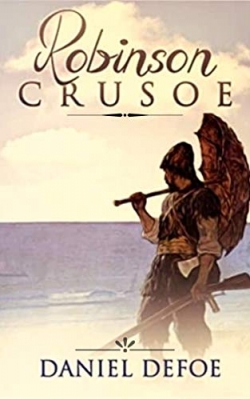
Defoe probably based part of Robinson Crusoe on the real-life experiences of Alexander Selkirk, a Scottish sailor who at his own request was put ashore on an uninhabited island in 1704 after a quarrel with his captain and stayed there until 1709.
But Defoe took his novel far beyond Selkirk’s story by blending the traditions of Puritan spiritual autobiography with an insistent scrutiny of the nature of human beings as social creatures. He also deployed components of travel literature and adventure stories, both of which boosted the novel’s popularity. From this mixture emerged Defoe’s major accomplishment in Robinson Crusoe: the invention of a modern myth. The novel is both a gripping tale and a sober wide-ranging reflection on ambition, self-reliance, civilization, and power.
Robinson Crusoe was a popular success in Britain, and it went through multiple editions in the months after its first publication. Translations were quickly published on the European continent, and Defoe wrote a sequel (The Farther Adventures of Robinson Crusoe) that was also published in 1719. Defoe’s book immediately spurred imitations, called Robinsonades, and he himself used it as a springboard for more fiction.
Credit : Britannica
Picture Credit : Google




